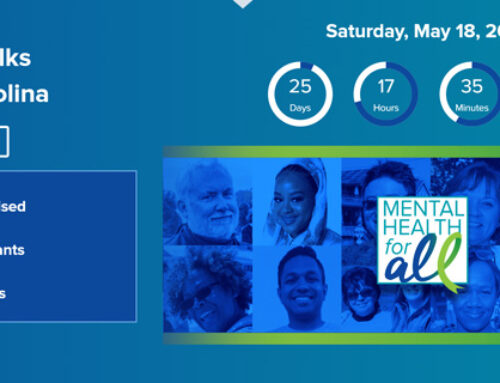It wasn’t until Devon Davis found himself sleeping in a homeless shelter that he tried to pull his life together.
Davis’ therapist drove by the window, honked her horn and waved goodbye. Davis waved back, grinning, and gave a thumbs up as she drove away.
But he didn’t get the job.
Good days, bad days
Multiple job applications later, he still is unemployed.
“I had an interview, but there was no hope. Nobody called,” Davis said. “Due to backgrounds and felonies and things like that … that’s what’s stopping me from getting a job. So what am I supposed to do?”
After two weeks of living at the shelter, Davis was kicked out of there, too. He says the metal detector at the shelter beeped too many times, and he got frustrated with the sheriff’s deputies who ran it. They got into an argument, and that was his last night there.
Davis went back to his mother. Shirley Lynch had been in and out of prison when Davis was a child. Both of his parents’ custody rights had been revoked by the court.
He and his mom ate pizza and chicken wings. Everything was great, but that didn’t last long.
Davis admits he doesn’t treat his mother well and says they will never have a good relationship. He knows the way he talks to her is cruel. He does it intentionally.
It’s payback for the years she was absent while in prison.
Shirley Lynch acknowledged that her sons are still upset about growing up in foster care, but she said she is not going to put up with their attitudes and disrespect when she is trying to help.
“You can’t carry that load all your life about what somebody did or didn’t do,” she said.“You have to learn to let stuff go, live for the now and keep it moving.”
After a couple of days at his mom’s, Davis became stir crazy, didn’t want her in his business and left. His days are spent waiting for the bus, bumming cigarettes, hanging out at his cousin’s barbershop and charging his cellphone in sandwich shops.
His nomadic lifestyle continues. One night at his mom’s, then at an uncle’s, the next at a cousin’s. It depends on whom he’s on good terms with at the moment.
Davis has his good days and his bad days.
On good days, he is all about getting his life together. He submits job applications, looks for housing and works on finishing his GED. He takes his medications. He is calm and helpful. He calls family and friends to chat. Everything is a joke, and life seems full of opportunity.
On bad days, no one is his friend. Everyone is out to get him or poison him. He flips off police officers as they drive by. He says hurtful things to his family and claims he doesn’t need anyone. He stops taking his medications because he says they give him the shakes. He struggles to focus and make eye contact. He cancels appointments and refuses to do anything. He just gives up.
For about a month this spring, Davis had a contract job working for a commercial cleaning service. It’s unclear whether he quit or was fired, but it did not last long.
“I had a job, but I quit. I quit because I wanted to,” he said. “I want to work for myself. Nobody else. It’s hard to get a job. You have to be Mr. or Mrs. Perfect. Nobody is perfect.”
The promise of change
For three years, Davis was alone in a prison cell roughly the size of a parking space. Now, he struggles with life on the outside, with unemployment, and with bipolar and other psychotic disorders, records show.
People in his circumstance are beginning to receive attention from state leaders. State prison commissioner David Guice says he wants to move away from the broad use of solitary confinement and get mentally ill prisoners the treatment they need.
“Emergency rooms, jails and prisons have become the de facto mental health hospitals,” Guice said.
He’s calling on state lawmakers for more funds to improve mental health and looking within his department for resources to open more treatment units with educational programs for all prisoners, but especially those with mental illnesses.
Others are studying how to better treat people with mental illness in the criminal justice system and when they return to society.
“It’s an amazing, sad thing that we are essentially incarcerating mental illness. It’s obviously wrong and an example of a broken system,” said Rick Brajer, the secretary of the N.C. Department of Health and Human Services.
He and a number of state lawmakers and department heads spoke at an annual legislative breakfast on mental health during March called “Breaking the Mental Health Pipeline to Prison.”
N.C. Supreme Court Chief Justice Mark Martin wants every justice system official to take mental health first-aid training.
“We all know that when we de-institutionalized mental health treatment in this country, we took everybody and started putting them in the criminal justice system,” Martin said.
What’s next?
A couple of weeks ago, Davis’ aunt passed away. At the time, he said he didn’t want to go to the funeral. He hasn’t seen his family much at all. He hasn’t been living with family lately but with a new friend.
He is finishing the tests to get his GED. He has failed a few times already. Unemployed, he waits for the state to approve his Social Security disability benefits.
“I’m still bouncing around,” Davis said. “I’ll be stable by the end of next year. … Something that you can call your own, that will be coming. No longer than next year. Nothing happens on the same day.”
He says his priorities are “finding something positive to do, school, job hunting, networking. Everything but the wrong things.”
“That’s my story for the day. I hope they enjoy it.”
Written by: Travis Long tlong@newsobserver.com
Read more here: http://www.newsobserver.com/news/politics-government/article80737257.html#storylink=cpy




